‘Erasure’: Netflix succumbs to Zionist lobby pressure, removes Palestinian films
By Maryam Qarehgozlou
Following Netflix’s decision to not renew the licenses for its “Palestinian Stories” collection, under the pressure of the Zionist lobby, the streaming giant has faced global backlash.
While the California-headquartered subscription video-on-demand streaming service claims that the decision was part of its “standard licensing practices,” pro-Palestine campaigners remain unconvinced and have joined a growing movement to cancel their subscriptions in protest.
The removal of at least 24 films that explore Palestinian narratives and experiences from the streaming service amounts to a lack of Palestinian representation on the platform, according to activists.
As a form of protest and to express solidarity with Palestinians amid the year-long genocidal war, a growing number of Netflix users have started canceling their subscriptions.
They believe subscriptions to Netflix equate to financially supporting the “erasure of Palestine.”
Many former Netflix users say the streaming platform is perpetuating harmful stereotypes, promoting biased narratives, and contributing to the marginalization of already oppressed Palestinians.
The streaming giant has been accused of complicity in the Israeli-American genocidal war on Gaza.
Palestinian Stories on Netflix
Netflix launched the “Palestinian Stories” collection in October 2021, a curated selection of films showcasing the talent of renowned filmmakers from the Arab and Muslim world, and offering viewers a glimpse into the rich and diverse stories of the region.
“The collection is a tribute to the creativity and passion of the Arab film industry as Netflix continues to invest in stories from the Arab world,” read a Netflix announcement at the time.
The collection was initially slated to feature 32 films, with plans to add more over time.
However, as of October 14, nearly all films from Netflix's “Palestinian Stories” collection have been removed much to the chagrin of streaming service users across the world.
Streamers in the United States are left with only one available film: Lina Al Abed’s 2019 documentary “Ibrahim: A Fate to Define," which deals with the circumstances surrounding the enforced disappearance of Abed's father.
Following The Intercept’s investigation using various countries’ IP addresses, it was discovered that Netflix had removed many titles from its “Palestinian Stories” collection across the globe.
In some parts of the world, like the Israeli-occupied territories and Korea, the collection’s landing page has been entirely inaccessible.
Upon accessing the “Palestinian Stories” collection page with an Israeli IP address, the entire category seems to have vanished, with the URL redirecting to a 404 error page.
The page previously featured 28 films.
Among the notable films removed from Netflix’s “Palestinian Stories” collection are Mai Masri’s Children of Shatila and Basil Khalil’s Ave Maria.
Masri’s documentary offers a poignant look into the lives of two children living in a refugee camp, while Khalil’s satirical short film follows Palestinian nuns assisting an Israeli settler family.
‘Marginalizing Palestinian voices’
The removal of Palestinian stories from Netflix has taken on a heightened significance against the backdrop of the ongoing genocidal war on Gaza, with the Israeli regime trying to ethnically cleanse Palestinians by bombing and starving them for more than one year.
The humanitarian crisis in the besieged Palestinian territory is dire, with Israeli genocidal actions killing close to 43,000 Palestinians, the majority of them women and children.
The coastal territory’s entire population of 2.3 million is facing displacement daily, while the regime’s genocidal tactics, including weaponized starvation, threaten to push the region towards famine.
Activists and rights groups have launched petitions urging Netflix to reinstate the Palestinian films it deleted, with many accusing it of coming under the pressure of influential Zionist lobbies.
“Storytelling is a crucial aspect of keeping Palestinian history alive — Netflix is literally erasing Palestinians’ stories and perspectives from popular culture,” anti-war group Code Pink wrote in a petition posted on X, formerly Twitter.
The petition warned that Netflix’s deletion of its entire catalog of Palestinian films will marginalize Palestinian voices at a time when over two million Palestinians in Gaza are being subjected to genocide by the Israeli regime using US-made and US-supplied bombs.
“The systemic erasure of Palestinian voices prevents broader audiences from understanding the reality of Israel’s brutal occupation, apartheid, ethnic cleansing, and now, the genocide of Palestinians,” the petition added.
Influence of Israeli lobby groups
A letter calling for the reinstatement of the films from 30 pro-Palestinian organizations, including Freedom Forward, noted that given the “horrifying reality” of Gaza, Netflix should be promoting – not deleting – Palestinian films so that more people can learn about Palestinian life under Israeli military domination and occupation.
“This erasure of Palestinian voices by Netflix follows many ugly decades of suppression of Palestinian viewpoints and narratives by Western news and entertainment media companies,” read the letter.
It questioned the causes and motives behind the abrupt purge, suggesting that Palestine-related films were deleted under pressure from Zionist lobby groups amid Israel’s devastating war on Gaza.
“How does Netflix justify the removal of so many films by or about Palestinians, one of the world’s most politically marginalized communities, especially at a time when Palestinians are facing genocide in Gaza?” the rights groups asked in the letter.
“Did pro-Israel lobbying or advocacy organizations push Netflix to delete these films by or about Palestinians?”
Pertinently, soon after Netflix introduced its “Palestinian Stories” collection three years ago, the films faced strong opposition from the influence-peddling Zionist lobby in the US.
The Times of Israel reported at the time that Im Tirtzu, an Israeli far-right watchdog, voiced criticism against the collection, claiming that 16 of the 19 featured directors endorsed the Boycott, Divestment, Sanctions (BDS) movement against Israel.
At the time Netflix responded that it “believes in artistic freedom and is continuously investing in authentic storytelling from all over the world,” leaving the films up for viewers.
It appears that the persistent efforts of Zionist lobbyists have ultimately borne fruit, with Netflix’s recent decision not to renew licenses for the films in the “Palestinian Stories” collection.
Subscribers switch off Netflix
Social media users, expressing their outrage and disappointment at Netflix’s removal of Palestinian movies and voices from their library, have chosen to cancel their subscriptions.
One user on X known by the handle “CryptoCaliph” announced his decision to cancel his Netflix subscription, citing the platform’s promotion of “Zionist Racism & Genocide” as his reason.
“Netflix removed all Palestinian movies and voices from their library. Instant canceled subscription. What’s your reason for canceling? ‘Zionist Racism & Genocide’.”
Another user highlighted a pattern of cultural erasure targeting Palestinians, citing multiple instances where Palestinian artistic and cultural expressions have been suppressed or removed, and encouraged individuals to cancel their Netflix accounts.
“They are trying to erase Palestine culturally - NYPD confiscating music and stopping dabke dancers, Netflix removing Palestinian movies from its platform. Amplify Palestinian artists, writers, cultures. And cancel your Netflix account,” the user wrote.
“The time has come… Bye bye, Netflix,” wrote another social media user Abier Khatib.
X user Shahnon Salleh also said the removal of films that depict the everyday experiences of Palestinians living under apartheid and occupation is preventing viewers from gaining a more nuanced understanding of the Palestinian perspective.
He slammed Netflix for the decision, warning that the remaining Palestine-related films available on the platform portray Palestinians in a negative light and perpetuate harmful stereotypes of Palestinians as “terrorists.”
“Films that show the day-to-day realities of the Apartheid and the occupation, like ‘The Present’ are now gone,” he wrote.
“What’s worse is the fact that the only Palestinian-related films still available on Netflix are those that portray them as terrorists. Netflix is complicit,” he added.
“If you’re still subscribed to Netflix, you’re actively funding the erasure of Palestine,” wrote user Jonny Graz.
Another user wrote, “Netflix has removed 30 Palestinian films from its catalog because it’s anti-Semitic to watch films made by Palestinians.”
X user writing under the handle “EverydayJoeDC” also lashed out at Netflix's content decisions, particularly the removal of Palestinian shows and movies while keeping Israeli propaganda, such as the show “Fauda.”
“Just canceled Netflix ... They got rid of all the Palestinian shows and movies but left that […] Israeli propaganda Fauda on. I’m not even Palestinian but that ‘Palestinians are the bad guys’ theme is super offensive,” he wrote.
The plot of “Fauda” (meaning chaos in Arabic) revolves around an elite Israeli undercover unit called the Mista’aravim, who pose as Palestinian civilians to apprehend resistance fighters.
The series mainly perpetuates harmful stereotypes and ignores the reality of Palestinian suffering under Israeli occupation.
Sunjeev Bery, the executive director of Freedom Forward also expressed outrage over Netflix’s decision to remove Palestinian media from its platform and drew a parallel between Israel’s attempts to erase the Palestinian people from Gaza and the West Bank, and Netflix’s actions.
“Israel is already trying to erase the Palestinians of Gaza and the West Bank. Why is Netflix erasing Palestinian media from its platform?” he wrote in an X post.
Russia slams ‘unacceptable’ US pressure on Cuba as Trump seeks oil cutoff
Epstein advised ex-Israeli PM Ehud Barak to cooperate with US AI firm Palantir
Iran, US to hold nuclear talks in Istanbul: Report
Israeli strikes kill at least one, injure several people in south Lebanon
VIDEO | Imam Khomeini at Iran’s Neauphle-le-Château: Revolutionary influence in France
VIDEO | Press TV's news headlines
Israel holds 766 Palestinian bodies, nearly half since October 2023: Report
VIDEO | A new lease of life


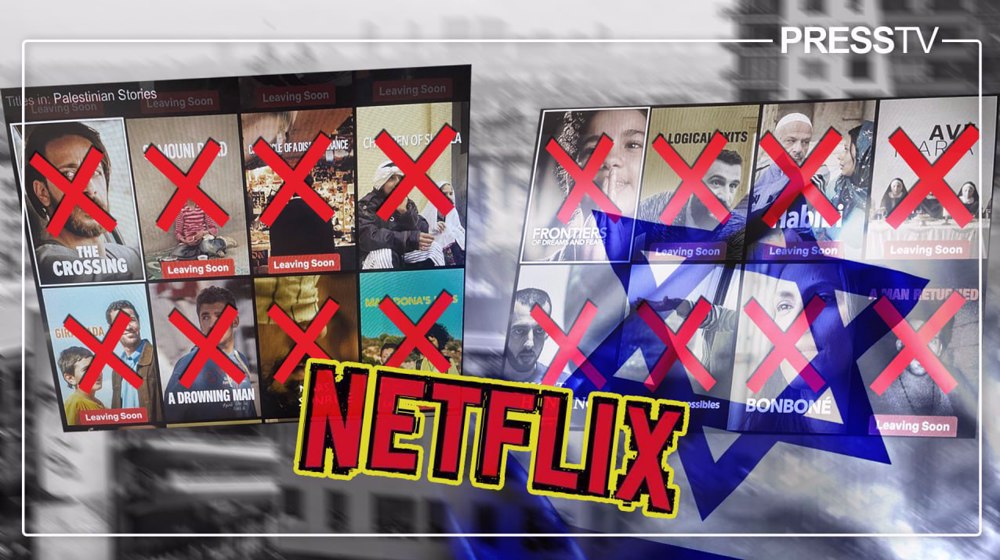
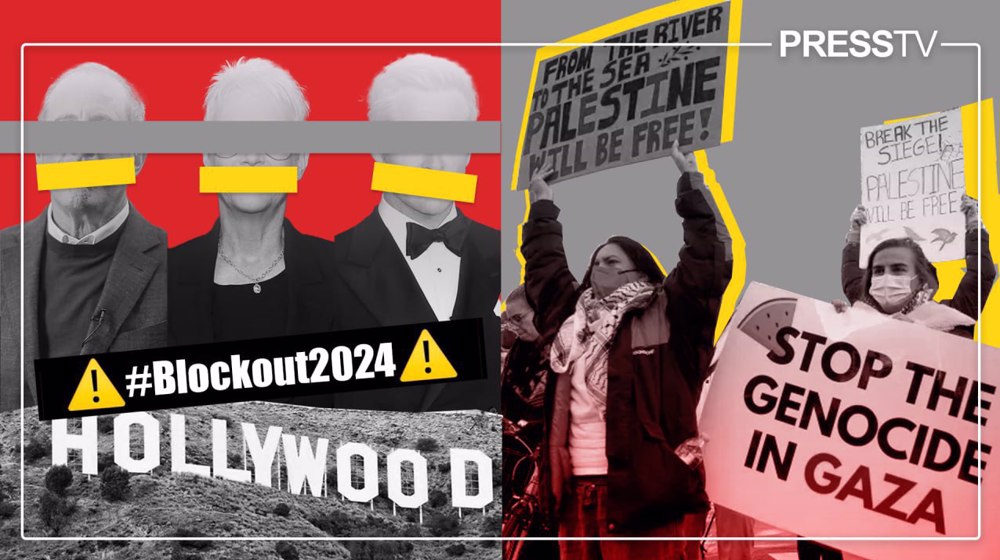


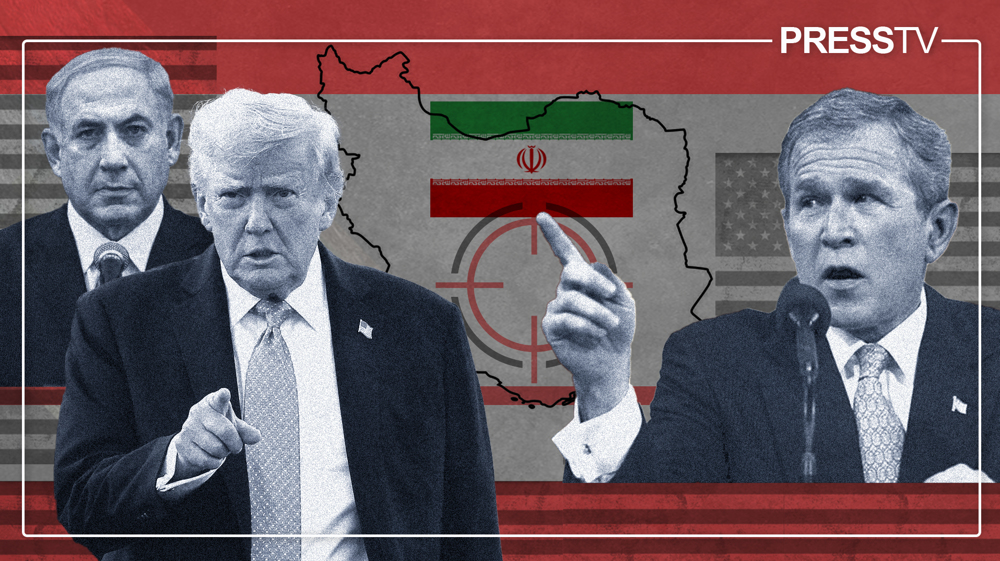
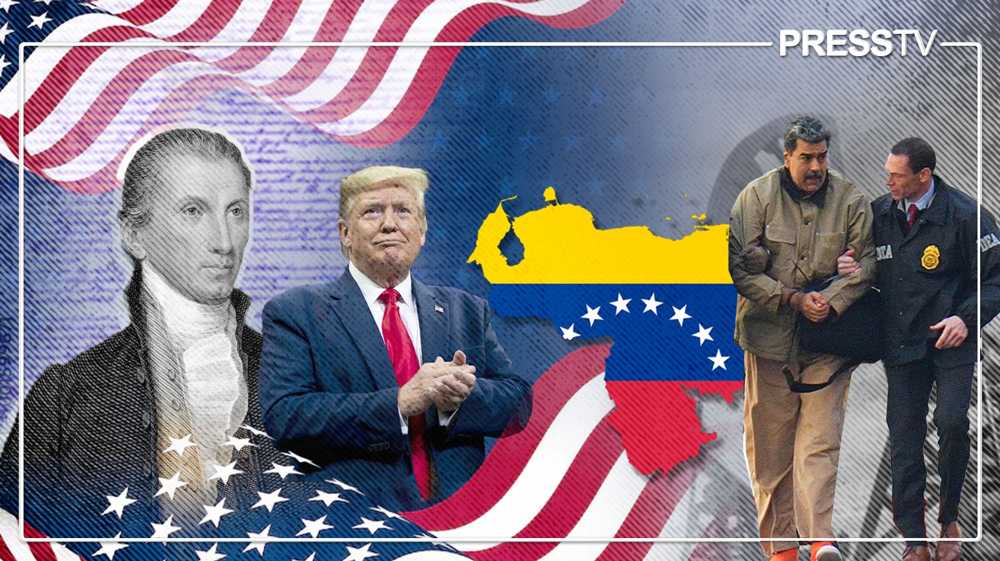
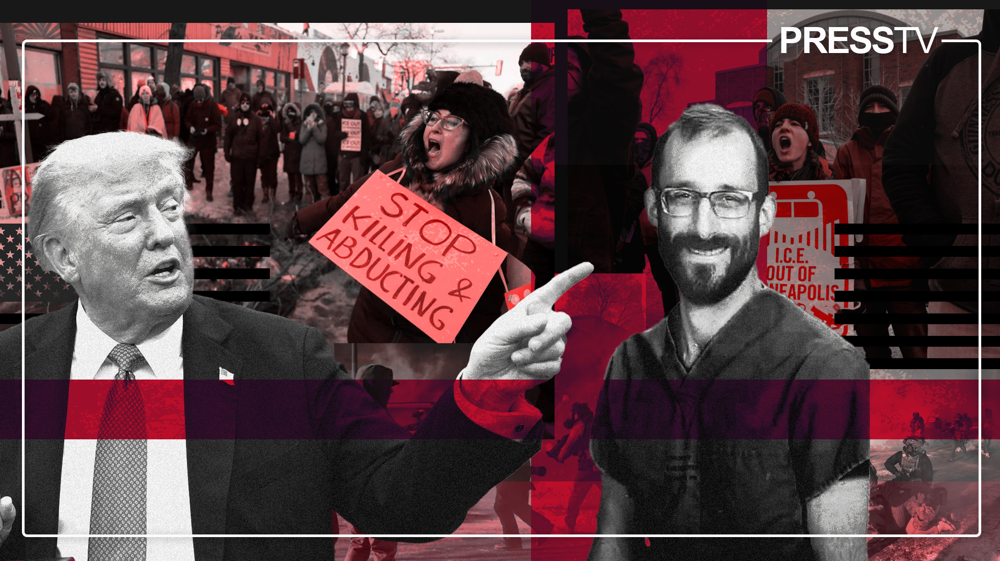



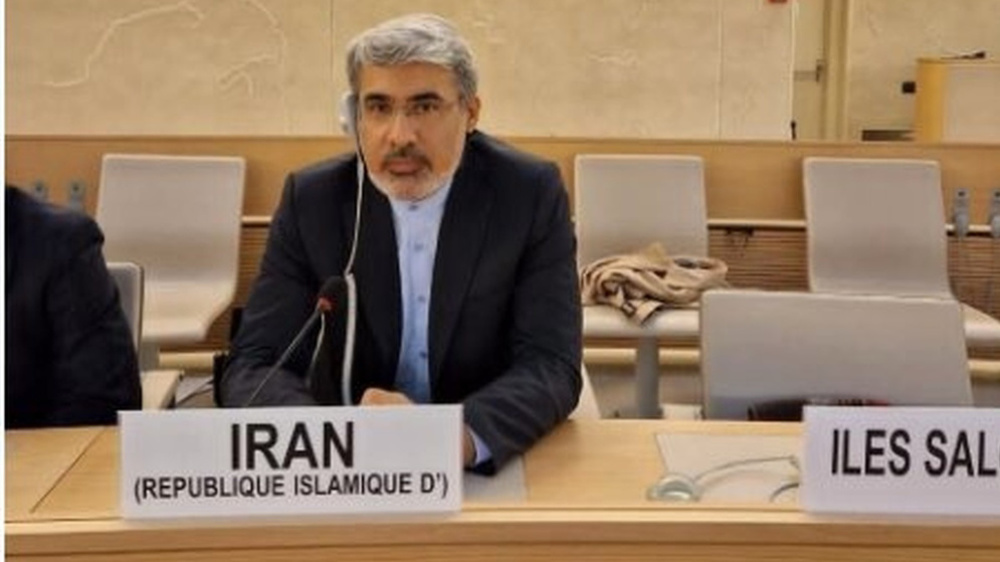





 This makes it easy to access the Press TV website
This makes it easy to access the Press TV website